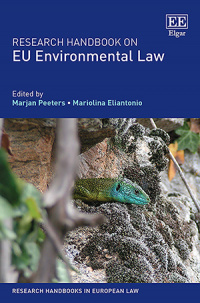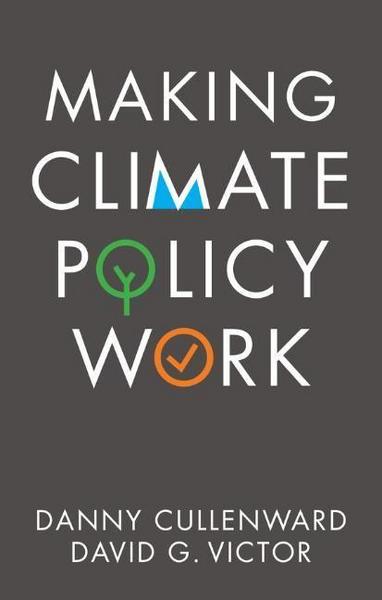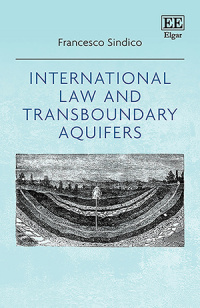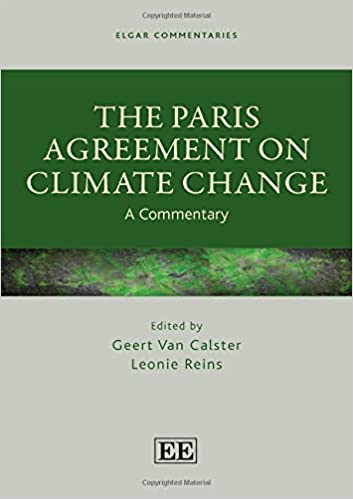
Volume 17/1
Alhousseini Diabate
Land law and collective private ownership in French-speaking countries of Western Africa; A study based on the example of Mali
Collective private ownership was the most important form of land appropriation in French-speaking Western Africa. The encounter with colonial law shook this form of ownership, replacing it with individual private ownership. However, after many a vicissitude, collective private ownership is reborn from its ashes, particularly in Malian land law. Figures of collective ownership which colonial law wanted to erase from judicial memory are rehabilitated. Hence, customary land law are summoned more and more often to reinforce the land property based on customary land possession, and to bring back to life collective private ownership.
However, the picture is not as shiny as it may seem since, even today, numerous countries in French-speaking Western Africa are reluctant to give back to collective private ownership its former lustre. Yet, the recurrence of land property conflicts linked to a growing land property insecurity, one of the causes of which is precisely the misreading or low recognition of collective land property in rural communities, calls for a greater valorisation of collective private ownership.
This article is published in french only, under the following title:
Le droit foncier et la propriété privée collective en Afrique de l'Ouest francophone: Etude à partir du Mali
La propriété privée collective était la plus importante des formes d’appropriation de la terre en Afrique de l’Ouest francophone. La rencontre avec le droit colonial a ébranlé cette forme de propriété pour lui substituer la propriété privée individuelle. Mais après maintes vicissitudes la propriété privée collective renait de ses cendres particulièrement en droit foncier malien. Des figures de propriétés collectives que le droit colonial a voulu effacer de la mémoire juridique ont été réhabilitées. Aussi, les droits fonciers coutumiers sont de plus en plus mobilisés pour renforcer la propriété foncière fondée sur la possession coutumière des terres et redonner vie à la propriété privée collective.
Toutefois, le tableau d’ensemble n’est pas reluisant car encore de nos jours de nombreux pays de l’Afrique de l’Ouest francophone répugnent à redonner à la propriété privée collective son lustre d’antan. Pourtant, la récurrence des conflits fonciers liée à une insécurité foncière grandissante dont l’une des causes est justement la méconnaissance ou la faible reconnaissance de la propriété foncière collective des communautés rurales, appelle à une plus grande valorisation de la propriété privée collective.
C.R Bijoy
Democracy In The Forests: The Governance That Is To Be
Decolonization of forest governance was finally ushered in by law almost a decade and a half ago. But democracy in the forests continues to be denied as the law itself got reduced to almost a state-sponsored welfare scheme, where some small bits of land for individual occupation and community access are granted, almost as a concession instead of outright demarcation of forests and their transfer to the Gram Sabhas for governance which is what the law is all about. The performance narrative too is embedded in this deceptive storyline obfuscating and confounding the law itself. Besides numerous implementation issues that require institutional reforms and actions, this distortion stems from three specific functions of the forest bureaucracy who are in effective control of the forests, namely forest diversion for non-forestry purposes, compensatory afforestation in lieu of this forest diversion and creation of inviolate areas. All these induce, if not require, State sanctioned and acquiesced trampling over the Forest Rights Act 2006. Dismantling these countervailing administrative functions opens up the politico-legal and administrative space for democracy in the forests where conservation and livelihood have the possibility to finally converge, and for the Forest Rights Act to finally begin to be implemented in its true intent.
Makweti Sishekanu and Morgan Katati
Subjectivity in the Logic of Zambia’s Environmental Impact Assessments (EIA) Process: The Bedrock of Controversial EIA Approvals
In the recent past, the Environmental Impact Assessment (EIA) process in Zambia has provoked controversy and conflicts of interests arising from a Ministerial approval of large scale open-pit mining operations in the Lower Zambezi National Park. This paper argues that such controversies and conflicts of interests are themselves quintessentially a symptomatic manifestation of the legal form, nature and character of the EIA rules. This paper is a critical analysis of the EIA process with the objective of demonstrating how the process is created around highly subjective regulatory culture bereft of objective scientific standards. The locus classicus of this paper is that the subjective approval process is itself a recipe for controversial and highly contested EIA approvals which turns EIAs into project authorization formalities rather than regulatory mechanisms for enforcing the precautionary and prevention principles in the spirit of environmental protection. This observation also highlights a stark distinction between EIA process and practice, i.e. the rules of procedure on paper and the actual EIA practices on the ground.
Sandra Cassotta, Vladimir Pacheco Cueva and Malayna Raftopoulos
A Case Study of the Carmichael Coal Mine from the Perspectives of Climate Change Litigation and Socio-Economic Factors
This study uses the case of the Carmichael Coal Mining Project in Australia, which, despite its potential economic and social effects, also generates an enormous amount of GHGs emissions in Australia and the rest of the planet, contravening to the commitments of the Paris Agreement, as well as the scientific assessments of the International Panel of Climate Change (IPCC). The article adopts a climate change litigation, systemic legal and socio-economic approach, including the role of science and economy in the Australian judiciary’s decision-making system. Scientific assessments and economic factors are evaluated when making mining project approval decisions. The results identify what are the legal elements of regression and advancement in climate change litigation that enable economic and social contributions against climate change impacts. The development of a methodological framework, integrating law and economics with climate change science impacts in a systemic and holistic regulatory framework, provides useful insights in identifying the relevant factors that the Australian courts should take into account when assessing mine issues within the statutory frameworks. It also advises how to balance environmental protection and business opportunities. The hope is to direct the Australian legal system towards a more just, modern and ethical system by including scientific findings and scientific uncertainty in a broader, holistic vision more in line with the current Anthropocene Era.
Gerd Winter
Problems and Solutions of Access to Genetic Resources and Benefit Sharing: A Theoretical Perspective - Part I
Access to genetic resources and benefit sharing (ABS) have taken quite sophisticated regulatory shapes since their inauguration by the Convention on Biological Diversity of 1992 and its Nagoya Protocol of 2010. The development of legal regimes and their implementation have nevertheless been accompanied by vivid controversies about several alleged shortcomings. This contribution provides an overview of existing unsolved problems, including of utilisation, commercialisation, digitalisation, and benefit sharing, explains them in terms of equity between providers and users of genetic resources and other principles, and discusses a number of more basic alternatives which are structured along a line from provider to user driven, or “upstream” and “downstream” models.
This is the first part of a two-part article: The first discusses the problems that have so far arisen from ABS law and practice while the second, building on experiences made, reflects on reasons why the problems are difficult to solve, and presents possible alternative models for ABS.
Comments
How Greece Undermined the Idea of Renewable Energy Communities: An Overview of the Relevant Legislation
by Marula Tsagkari
In the past years, the environmental legislation in Greece has been modernized and updated under the pressure of climate change. The important role of energy communities in the energy transition was acknowledged in 2018 with the progressive law 4513/2018. However, there is still little evidence that the country is actually moving towards energy decentralization. Recently, the idea of energy communities has been undermined and their unique challenges and needs are overlooked. On the contrary, the concept of “local energy” with strong participation from private companies and local authorities, that can promote big investments and hinder growth, is gaining ground in the recent regulation. The present article is an overview of the recent Greek legislation on energy communities highlighting how the Greek regulation moved from a supportive framework for energy communities to a new focus on “local energy”.
Book reviews
Research Handbook on EU Environmental Law
by Marjan Peeters and Mariolina Eliantonio, eds (Edward Elgar Publishing Limited 2020)
Reviewed by Virginie Rouas, Research Associate at SOAS, University of London

Making Climate Policy Work
by Danny Cullenward and David G Victor (Polity Press, 2020)
Reviewed by: Owen Tutt, MA International Studies and Diplomacy candidate, SOAS, University of London


Volume 17/2
Gerd Winter
Problems and Solutions of Access to Genetic Resources and Benefit Sharing: A Theoretical Perspective - Part II
Access to genetic resources and benefit sharing (ABS) have taken quite sophisticated regulatory shapes since their inauguration by the Convention on Biological Diversity of 1992 and its Nagoya Protocol of 2010. The development of legal regimes and their implementation have nevertheless been accompanied by vivid controversies about several alleged shortcomings. This contribution provides an overview of existing unsolved problems, including of utilisation, commercialisation, digitalisation, and benefit sharing, explains them in terms of equity between providers and users of genetic resources and other principles, and discusses a number of more basic alternatives which are structured along a line from provider to user driven, or “upstream” and “downstream” models.
This is the second part of a two-part article: The first discusses the problems that have so far arisen from ABS law and practice while the second, building on experiences made, reflects on reasons why the problems are difficult to solve, and presents possible alternative models for ABS.
Gaia Hasse, Kelly Lissandra Bruch and Joana Stelzer
Institutionalizing Biopiracy: Analysis of the Benefit-Sharing Rules in the Brazilian Biodiversity Law
The debates on sustainable development raise one of the key points of sustainability: the substantial value of traditional knowledge in developing a mutually enhancing human-Earth relationship. Nevertheless, although this discussion aims at establishing rules and boundaries to the access and exploitation of natural resources, traditional knowledge is not easily defined nor protected by the current legal frameworks. This hardness creates a normative gap regarding the protection of cultural expressions and knowledge of indigenous and traditional peoples. In Brazil, Law 13123/2015 set the current legal framework related to the matter, assorting about genetic resources, the protection and access of traditional knowledge and benefit sharing for the conservation and sustainable use of biodiversity. However, its dispositions are contradictory and there is a lack of protection of Brazilian socio-biodiversity. From the analysis of the benefit-sharing rules in the Brazilian Biodiversity law, this article identifies that the legal system allows the appropriation of Traditional Knowledge without fair and equitable sharing of the benefits derived from its exploitation with the Traditional Communities. This research work aspires to explain the formulation of the current legal framework, disputing the role that the dominant epistemology plays in the determination of legal concepts and, accordingly, in the creation of norms.
Kaito Suzuki
A Non-Discrimination Approach to the Right to Land of Indigenous Peoples against a Sui Generis approach: Is It Possible in International Human Rights Law?
This paper argues that the right to land of indigenous peoples is compatible with the right to non-discrimination in international law. Indigenous peoples have been identified as historically colonised subjects and the victims of land deprivation in international law.
Even though the right to land has been recognised as an established state practice, there are concerns regarding its incompatibility with the principle of substantive non-discrimination under international human rights law. This position gave birth to a sui generis approach, which tries to legitimise the treatment of indigenous peoples’ rights to land. This position has been adopted by some representative researchers in the area of the rights of indigenous peoples, such as James Anaya and Benedict Kingsbury. Nevertheless, this right to land can be understood as a part of international human rights law as a special measure which is taken against substantive non-discrimination. Such an interpretation will be possible especially by reconsidering the concept of specific rights, which have been understood as an exception of special measures. In other words, substantive non-discrimination should be dynamically interpreted according to the issues around sustainable cultural management and property rights, as typically represented by the 2007 United Nations Declaration on the Rights of the Indigenous Peoples (UNDRIP). This kind of argument inevitably requires discussions on the scope of substantive non-discrimination in international law itself. It will not only foster deliberations on the entitlement of right to land of similar actors like minorities and peasants but will also include discussions about the recognition of rights in other areas, such as women’s rights.
Roopa Madhav
Rights over Mineral Resources: Mapping Recent Judicial Trends
Mineral resources, widely understood to be owned by the state, are subject to a complex legal regime. Recent judicial pronouncements in India interrogate the long-held legal consensus on mineral rights, including the crucial question of ownership over mineral resources and the role of the state in resource management. This paper maps the changing discourse to point to the many strands that highlight established customary rights over mineral resources, public rights, and other claims over mineral resources. Through the lens of judicial rulings, I argue that the mapping of rights over mineral resources requires greater nuance and a more careful examination, to incorporate the emerging new jurisprudence.
Anna Berti Suman
Striving for Good Environmental Information: Civic Sentinels of Oil Pollution in the South of the North
This study analyses how local dwellers use environmental data collected on the ground (through “citizen sensing” initiatives) to push for official interventions and to ground legal claims. The analysis is carried out through a framework built on three theoretical lenses – that of reactive citizen sensing, of regulatory pluralism and of resources’ colonialism – and put in relation with the rights’ system provided under the Aarhus Convention. The study draws on findings of field research in the south of Italy, observing “civic sentinels” (i.e. local citizens acting as “alerts” reporting environmental problems from the ground) in action. The analysis ultimately stresses the essential need that humans have to access (good) information when faced with environmental distress. It also uncovers the emerging trend of civic actors using the data they collect for demanding official interventions and claiming breaches of their human environmental rights. In the conclusion, the article reflects on the implications of the findings for legal entitlements, when faced with these modes of civic engagement and for the practice of citizen sensing as a tool to address and possibly mediate environmental conflicts.
Jenny Hall & Louis Koen
Common but Differentiated Responsibility at What Cost? Investment Law as a Barrier to Climate Ambition and Achieving Zero Routine Gas Flaring in Africa
by Eti Best Herbert and Oluwabunmi Temitope Akinleye
Ideally taking climate action should not be met with unintended barriers that impact on the extent to which measures can be adopted and implemented effectively, particularly not by other areas of law. Unfortunately, international investment law can present precisely such a risk. This article examines the interaction between Common but Differentiated Responsibility (CBDR) and Responsive Capabilities (RC) in the climate regime and the use of stabilisation clauses in international investment law. It does so through the lens of the implications of eliminating gas flaring in Angola and Cameroon – a climate response which both countries have committed to and which could make a substantial contribution to the realisation of their Nationally Determined Contributions (NDC) commitments. The study shows that where Angola and Cameroon adopt more stringent anti-gas-flaring laws to eliminate gas flaring they can encounter challenges where the treaty-based stabilisation clauses that they are party to are invoked as these clauses can be used to require Angola and Cameroon to compensate investors where the elimination of routine gas flaring affects their bottom line. The implications are profound. Not least of these is that they condone a business-as-usual approach and can create a chilling effect on a country’s climate ambition and willingness to take far-reaching climate action. In the context of the consequences that unmitigated climate change poses in the era of the Anthropocene, it is argued that stabilisation clauses which operate for the benefit of individual investors seem self-evidently myopic and self-defeating.
Comments
Review of the Legal Response to Environmental Impact of Covid-19 in Nigeria
by Eti Best Herbert and Oluwabunmi Temitope Akinleye
Covid-19 pandemic has occasioned environmental impact arising from challenges associated with management of infectious solid waste. This study examines the adequacy or otherwise of legal steps taken to address this challenge in Nigeria. Pre-Covid-19 regulations do not contemplate the special treatment that should be given to Covid-19 infectious waste. The NCDC and NESREA created Covid-19 specific waste management guidelines to make up for this regulatory gap are considered inadequate in view of their non-legal status. Policy incoherence has been identified in the non-recognition of infectious waste handlers as essential workers. This is notwithstanding the recognition of the waste management emergency created by the Covid-19 pandemic in the various Guidelines. It is therefore, expedient for the relevant authorities to convert the guidelines to regulations in accordance with requisite subsidiary legislative powers.
Book reviews
International Law and Transboundary Aquifers
by Francesco Sindico (Cheltenham: Edward Elgar, 2020)
Reviewed by : Roopa Madhav, PhD Scholar, SOAS, University of London

The Paris Agreement on Climate Change: A Commentary
by Geert van Calster, Lenonie Reins, eds (Edward Elgar Publishing Limited 2021)
Reviewed by Godswill Agbaitoro, Lecturer in Law, School of Law, University of Essex
